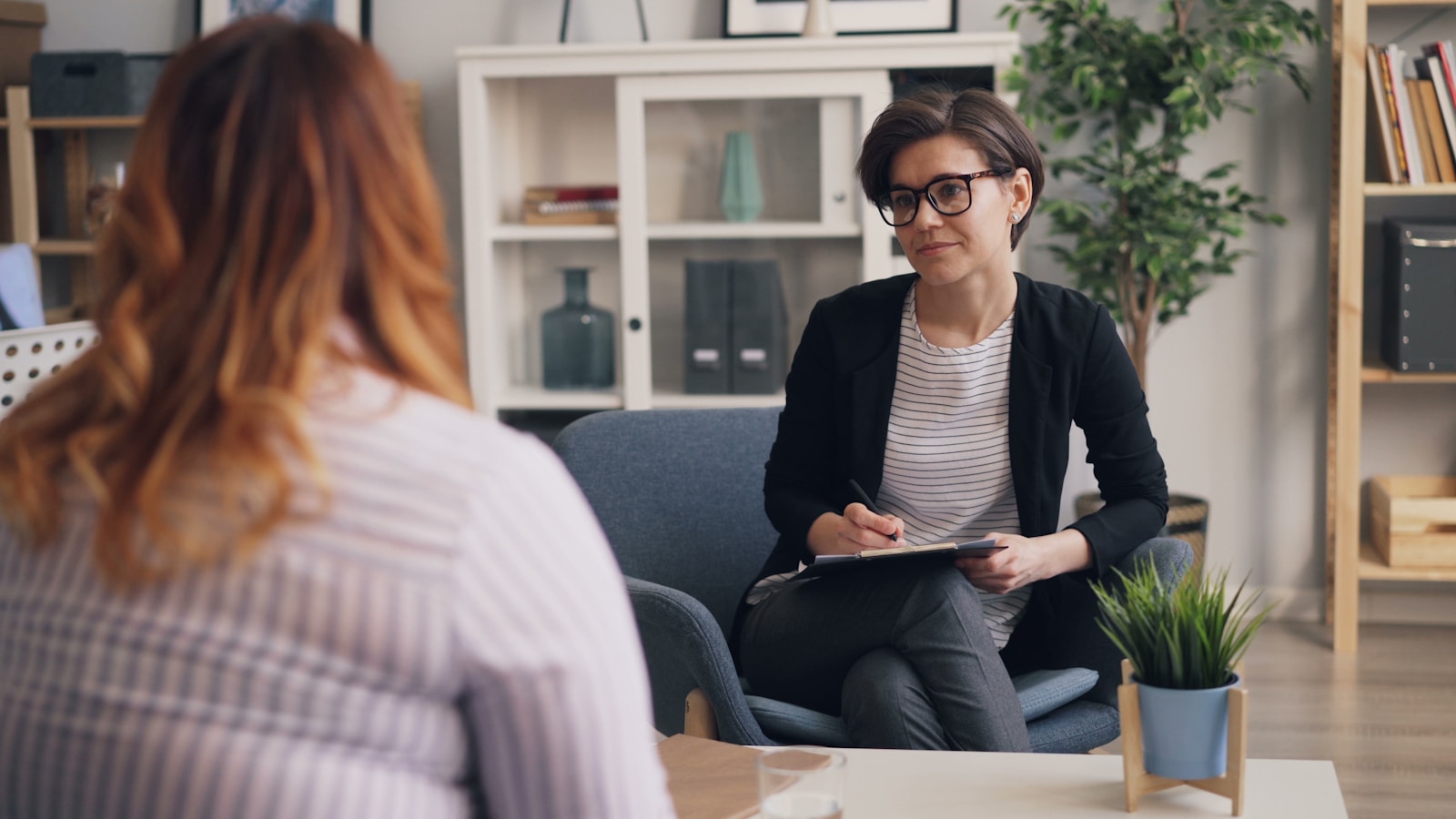
Most people want to improve their confidence in interviews, so they feel sure of themselves and the value they bring to a prospective employer, so they can communicate this during the interview. Feeling anxious about interviews is really common, and it affects people at all levels, including the most senior executives.
This article outlines how we can build our self-confidence in interviews, overcome anxiety and interview nerves.
Do you need to improve your interview skills?
Self-confidence is our attitude about our skills and abilities, which is based on our perception of ourselves rather than how competent/able we are. In order to improve your confidence, it’s important to understand how well you are currently interviewing and whether you need to improve your interview skills. You can gain this interview feedback through a mock interview, interview coaching, or from a company who is willing to share interview feedback. You may also need to know the specific steps to take to improve your interview skills.
It is not always clear whether lacking confidence in interviews reflects a lack of interview skills competence (which can be improved via training), or whether the person is already competent, but doesn’t feel competent. Many people who lack confidence have a critical “inner voice” which constantly tells them they are not good enough, and rates their own performance far more critically than other people do, even though this is untrue. Seeking honest, constructive feedback enables us to base our self-confidence on facts, rather than relying on our perception, which may be inaccurate.
Improving your interview skills
When we feel nervous about a situation such as a forthcoming interview, it helps to focus on improving the situation, or reducing the likelihood of the interview going badly by improving your interview skills, rather than dwelling on the issue, which can make it look overwhelming.
One of the best ways to prepare for an interview is to focus on how you can deliver value in each area of the job description, this focuses your attention on your strengths, expertise and achievements which increases your confidence. You may also wish to prepare and practice answers to common interview questions.
Many people find it helpful to practice their interview skills with an interview coach, friend, relative or in front of the mirror. You may find that an answer sounds awkward, or unconvincing when spoken aloud, so this provides an opportunity for you to refine your answers and memorise them. The more you practice, the more confident you will feel in the interview.
Look at the interview from the recruiters perspective
Often, when we are worried, we focus on our concern and lose sight of the broader picture. When we consider an interview from the recruiter’s perspective, this helps to put the situation back into perspective and makes our concern seem less daunting.
A recruiter needs to find the right person to help them solve the issues in the job description. A great way of preparing for interviews is to focus on how we can help the recruiter in each area of the job description. This keeps us focused on our strengths and how we can help the recruiter.
Recruiters are busy people, they only interview people who they are already sure meet the role profile, so if they’ve invited you for interview, they’re already convinced you meet the role profile and have the ability to do the role. They’re not expecting you to be word-perfect, or hugely confident, just able to talk through your experience with some prompting if needed. Interviewers are expecting you to be nervous and have been (hopefully) trained to put you at ease, so you can perform at your best. They know you may forget what you want to say, and may not give your best examples because you feel under pressure, it happens all the time. A key part of their role is to help you to give them the information they need, plus it’s in their interest too, otherwise they’ll have to go back and shortlist more candidates.
Think positively
In order to improve our self-confidence, it can be very helpful to think positively and practise positive self-talk. When people feel low in confidence, they tend to focus on their weaknesses, the risk of failure, and may be overly critical about themselves, thinking negative thoughts like “it’s all going to go horribly wrong”, “I’m useless” etc. If we regularly hear the same negative message being repeated, it can erode our confidence and self-esteem.
It has been proven that the more we hear something, the more likely we are to believe it. Our beliefs shape our behaviour, so our inner voice can have a large impact on our future success or failure, as well as our confidence levels. It can be really helpful to think about what you would say to a friend approaching an interview and start supporting and encouraging yourself in the same way “come-on, I know you’ll be great!”, so you focus on your strengths and the opportunity for everything to go well.
After the interview, try to reflect on what went well, rather than where you struggled. Whilst working in HR I offered roles to many candidates who were amazed because they thought they’d messed up the interview, whereas I was looking at their strengths and potential, and barely noticed their minor stumbles which to me were completely normal!
You may wish to read the following articles, which discuss how you can build your self-confidence by changing how you see yourself, changing how you look at situations, as well as tips to improve your self-confidence.
Appearing more confident
Your body language during an interview can portray confidence, even if you don’t feel particularly confident. Remember, the interviewer is looking at your body language, and listening to what you say, they don’t know how you feel.
During an interview take deep breaths, give a firm handshake, try to keep your shoulders back and lean slightly forwards towards the interviewer, try to speak clearly, maintain eye contact and smile so you look enthusiastic, rather than if you’d prefer to be anywhere else.
Building your Confidence
Would you like to improve your confidence in interviews? I provide interview coaching sessions which improve your interview skills and confidence. You can find more information and prices via the links. You are welcome to contact me, and I’ll be pleased to discuss how I can plan a session to help you.










